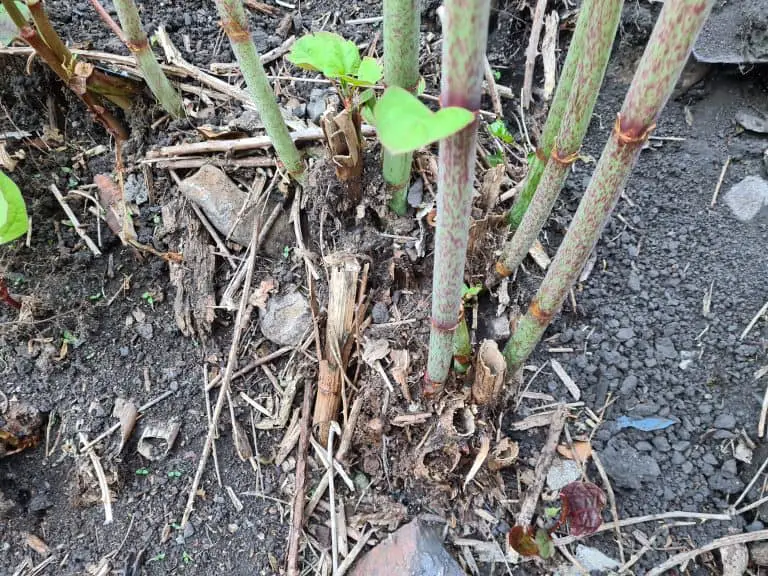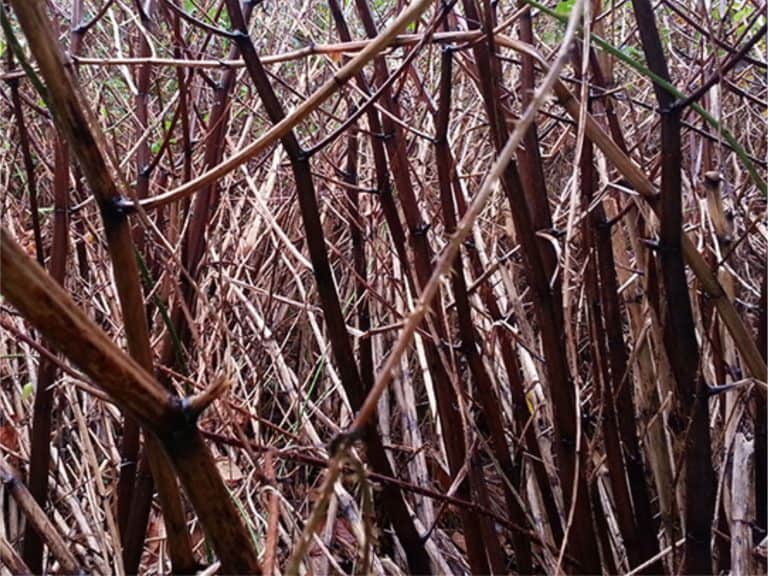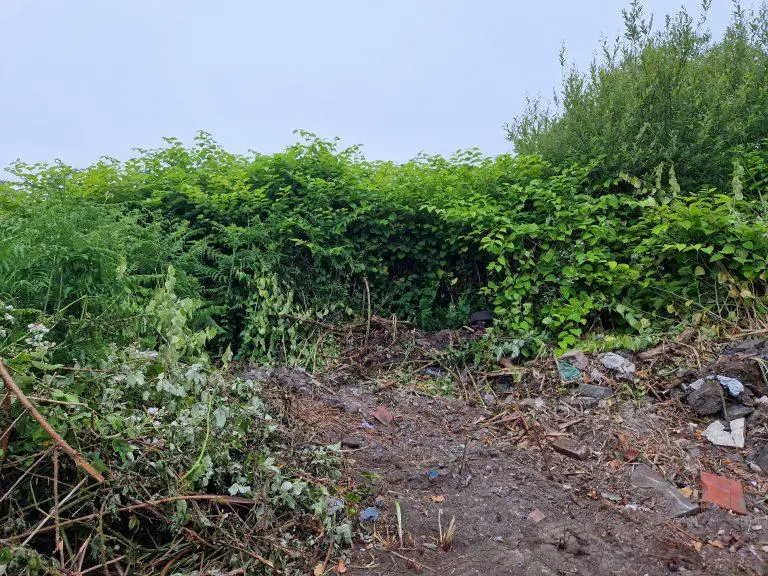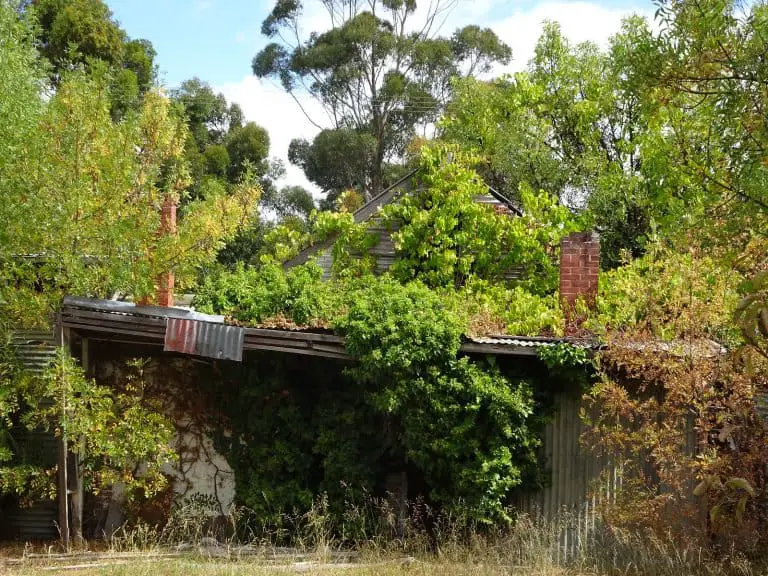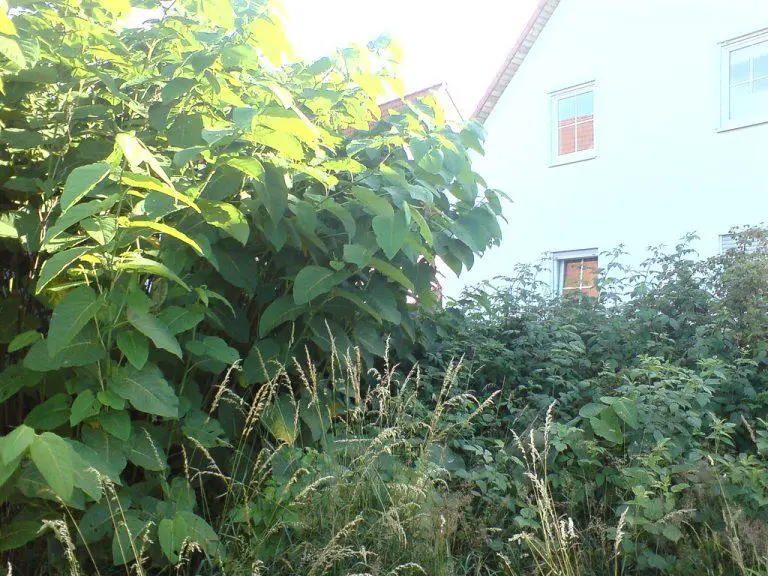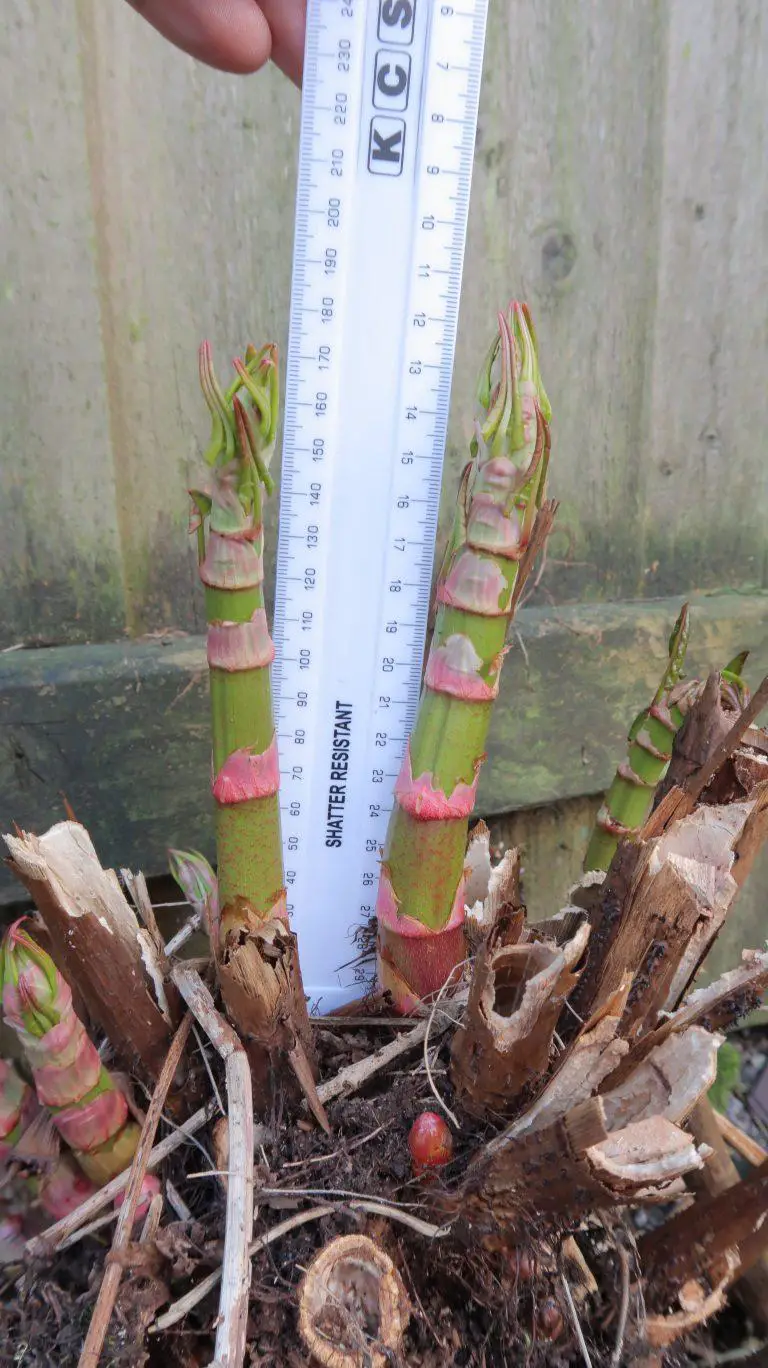The question of whether you should buy a house with Japanese knotweed in the garden is the main concern these days due to it potentially devaluing the property.
Removing Japanese knotweed permanently can be a troublesome exercise which, if not carried out properly, can be an action in futility since this invasive ornamental plant has a ‘never die attitude’ that stimulates its quick growth where no permanent removal has been successful.
Japanese knotweed can have disastrous consequences to property, the environment and the structural integrity of buildings if one does not get rid of it at the earliest possible stage.
The tenacious root system of this highly invasive weed plant can cause havoc even to the strongest of structures. Based on the foregoing, it is clear that having Japanese knotweed in the garden is a disaster waiting to happen.
Here are some reasons why you should avoid buying a house with Japanese knotweed;
Damage to the environment
The presence of Japanese knotweed in your garden poses a bigger threat to the surrounding environment that you live in.
For instance, this weed plant’s ability to grow up to 12 feet tall implies that it can dominate the vegetation beneath and deprive it of sunlight thus impeding further growth and in extreme circumstances leading to extinction.
The beautiful environment that you enjoy will no longer be there, just an invasive weed plant. This factor should make you despise the presence of Japanese knotweed in your garden.
Condenses play area
Japanese knotweed does not stop growing and spreading. The roots of this weed plant can grow up to 3 metres into the soil and spread up to 7 metres wide.
Taking into account that it is this tenacious root system that supports the whole plant and its growth, this should be a big cause for concern the moment you spot the weed growing in your garden.
As each day passes, this weed plant continues to spread within the garden and the end result as a consequence will be to significantly reduce the size of your garden/play area.
To this end, you, the children and any domestic animals that you may no longer enjoy the serenity of the garden area. This is why you should think twice before buying any house with Japanese knotweed in the garden.
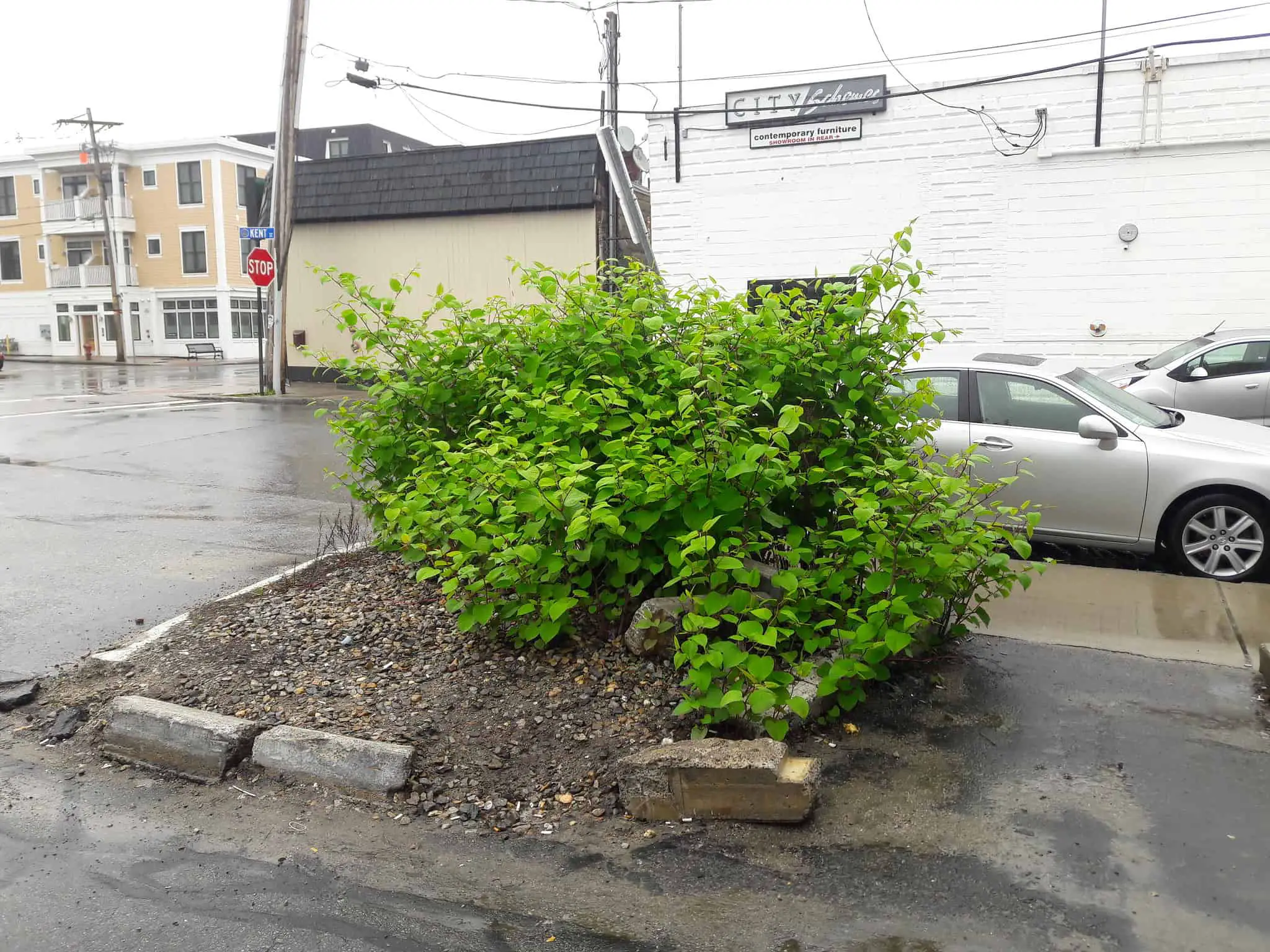
Boundary fences
It is a common practice to find homeowners erecting fences around their property.
Such fences/boundaries most times are made of wooden or plant material that is meant to act as beautification hence may not be very strong to withstand heavy force because this is exactly what the weed plant brings when it comes into contact with such fences.
Considering that the Japanese knotweed, once fully grown especially from the ground up, can become very heavy, it can easily overwhelm lightweight garden walls and fences, especially where the foundations are not so strong or poorly constructed.
You should be wary of this element because if you do not get rid of the Japanese knotweed in your garden, then you must be vigilant in conducting repairs within the property where necessary in the event that the weed plant causes damage.
Interior Damage
If you think Japanese knotweed cannot attack the interior of your house, you are wrong. Japanese knotweed does not discriminate on its preferred location of growth, this poses a greater problem to homeowners of the possibility to deal with the weed plant once it starts creeping through the tiny cracks and occupying the inside of the house.
The weed plant can ascent up the house walls, making the interior unpleasant and uninhabitable if not dealt with urgently.
Basically, this weed plant can go to the extent of scrubbing off the paint on your walls, creeping under your household’s items and making life a living hell.
For that reason, buying a house with Japanese knotweed should be a no for any person intending to have peace and quiet enjoying the property space.
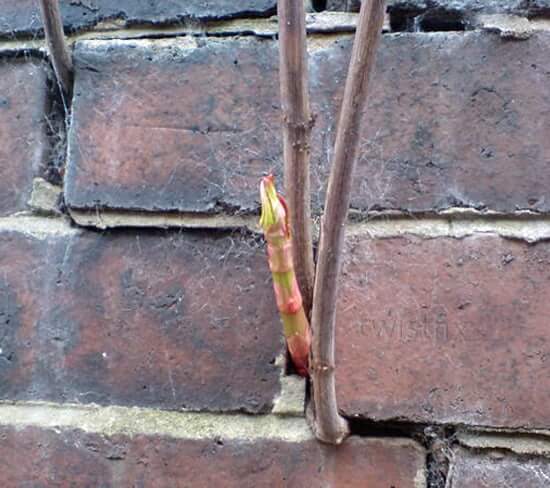
Weakening house structures
Often, you can find small cracks between the joints of a house, especially at the doors or windows. Japanese knotweed has a tendency to creep through the walls of buildings mainly in search of sufficient sunlight as this is one of the components that it requires to constantly grow.
This genetic behaviour makes the weed plant extremely harmful because it will exploit the tiny cracks, especially those that are near the joints of doors and windows and forcefully penetrate through.
If this problem is not dealt with at the earliest possible time, it may eventually result in the widening of such cracks and the end result is that you may need to do repairs.
Conclusion
From the onset, the presence of Japanese knotweed in the garden should be a red flag that you should not ignore before buying a house. As a matter of fact, you should refrain from buying such a house at all costs for our own best interests.
Recent studies show that the presence of Japanese knotweed in an area causes the value of the property in that area to depreciate depreciates based on the invasive nature of the weed and the unprecedented damage that is likely to result.
Additionally, very few people will invest in a property that does not guarantee good serenity, peace, and quiet free of an invasive weed such as the Japanese knotweed.
Taking into account that Japanese knotweed is dangerous to the environment and buildings; this aspect greatly contributes to the depreciation of property investments around an area affected by the weed.
Additionally, there are many emerging cases of mortgage lenders being overly reluctant to offer financial support to purchasers intending to buy such properties under the Japanese knotweed attack.
The invasive nature of the Japanese knotweed makes it lethal once it is allowed to overstay in any location.
Before you buy a house with Japanese knotweed in the garden, it will be wise if you first worked out a plan on how to get rid of the weed plant with the seller of such a house before ownership is transferred to you.
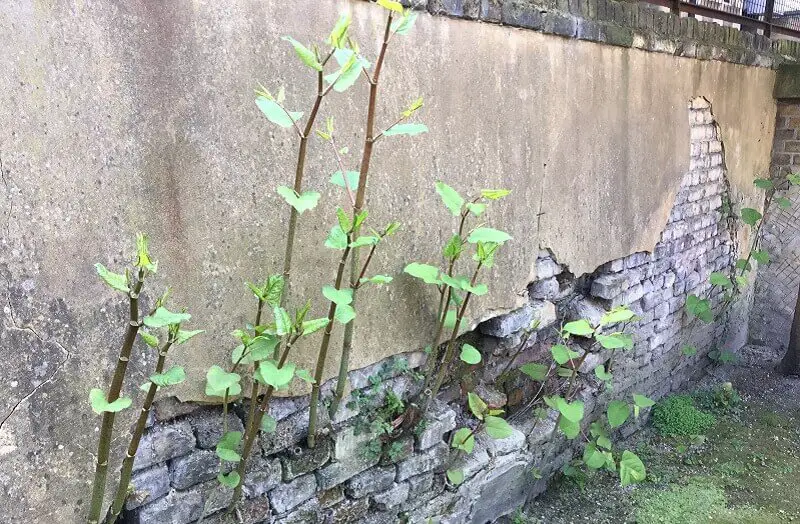
Want to know more about Japanese knotweed in the garden?
Knotweed Removal aims to provide the most up-to-date information, help and advice for YOU to make informed decisions. If you are unsure or uncertain about how to proceed, please reach out to us and we will gladly come back and advise you as best we can.
Governmental advice can be found here and the UK law covering the removal of Japanese Knotweed as stated under the Wildlife and Countryside Act 1981 can be found here.
The best means to contact us is via our email – hello@knotweedremoval.tips
Do not forget we have a library of blogs covering many areas relevant to Japanese Knotweed, our free downloadable How-to Guides and Product Reviews on the latest methods being employed to eradicate or remove Japanese Knotweed.
Knotweed Removal, UK

